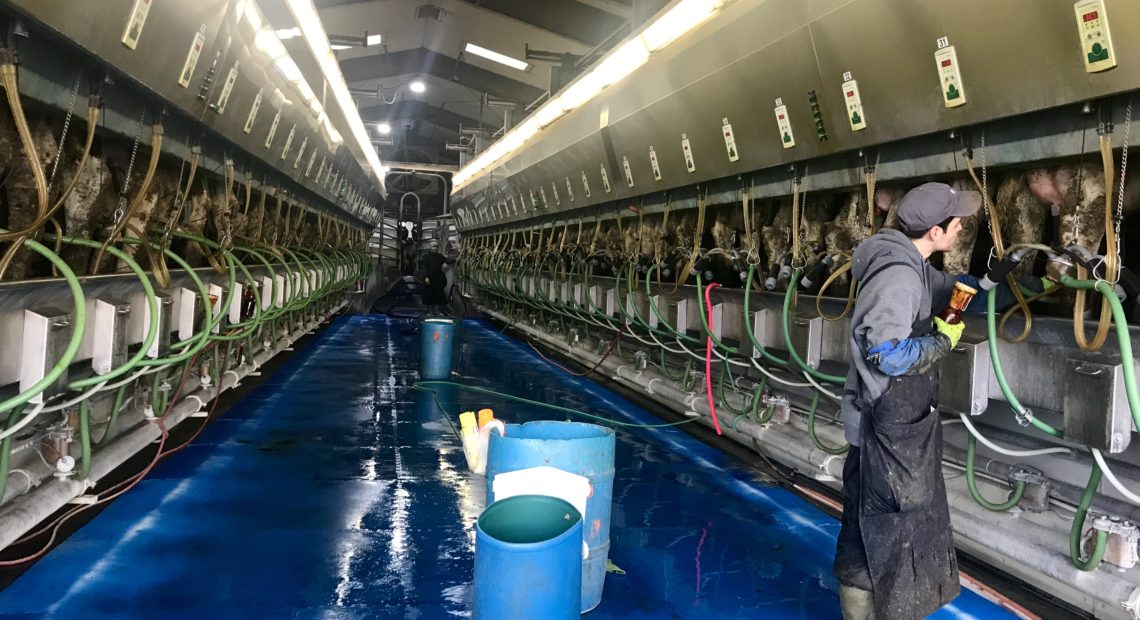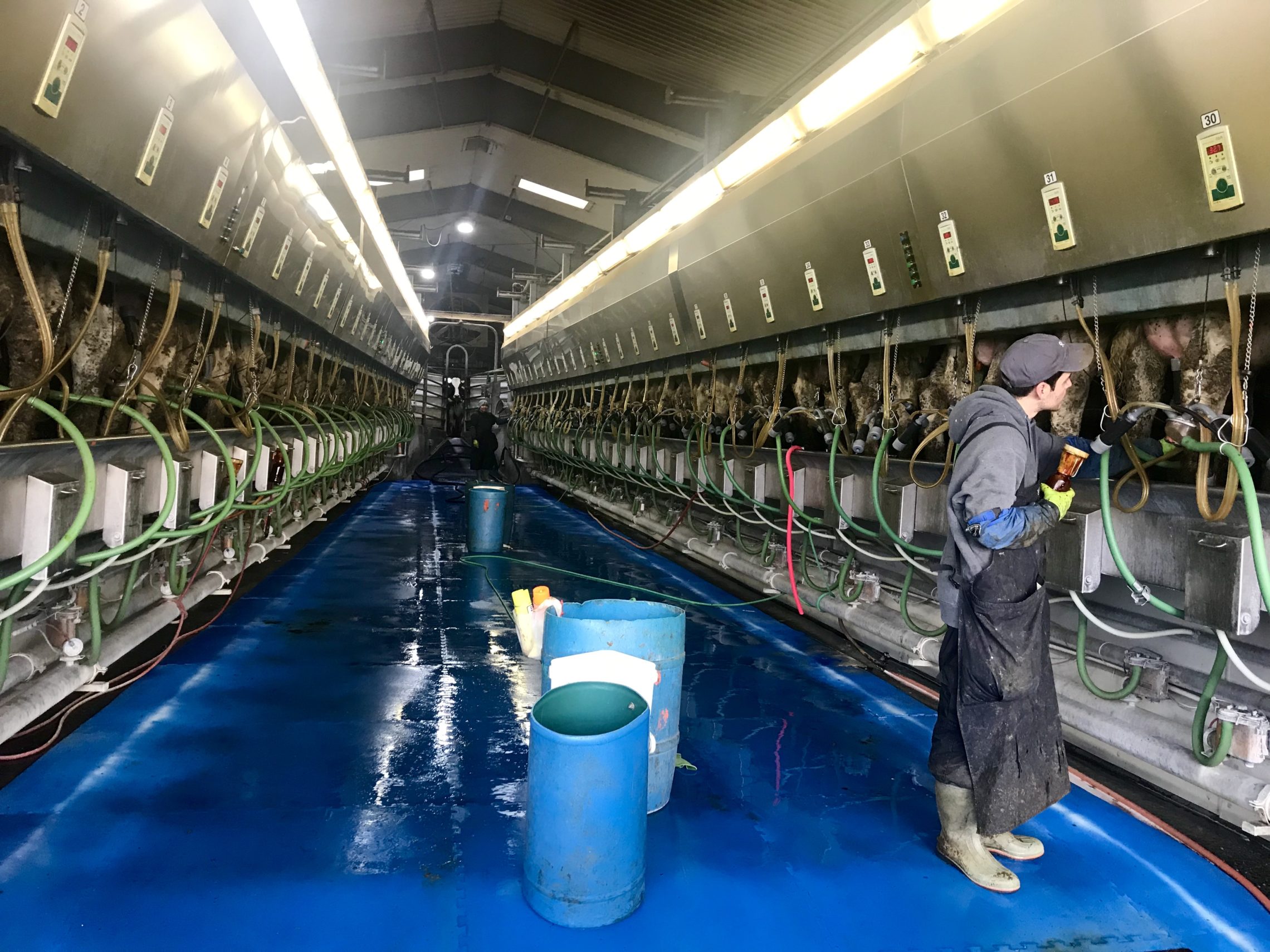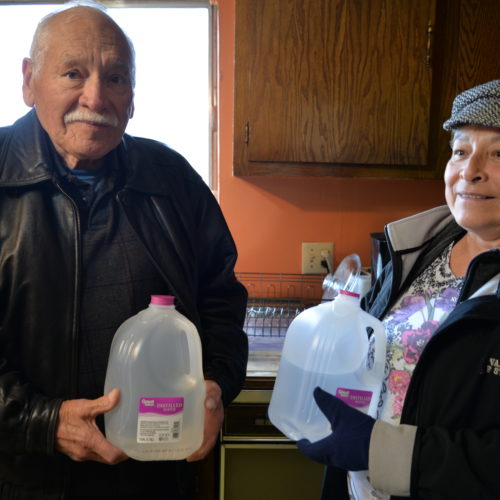
Washington Court Rules In Favor Of Conservation Groups In Fight Over Cattle Lots And Groundwater

READ ON
It’s back to the drawing board for state regulators, after the Washington Court of Appeals ordered the Department of Ecology to rework permits for confined animal feeding operations, known as CAFOs.
A panel of judges ruled that current waste discharge permits don’t adequately protect groundwater and don’t take climate change into account.
Conservation groups are calling the ruling a “watershed moment for the entire state of Washington.”
“Time is of the essence. Ecology has been dragging its feet for decades, and now it’s time for them to take responsibility and protect the people of Washington,” said Charlie Tebbutt, lead attorney for the conservation groups, including Friends of Toppenish Creek, Puget Soundkeeper and the Sierra Club.
The decision came after the groups appealed a 2018 decision from the state Pollution Control Hearings Board, which had mostly upheld the Department of Ecology’s CAFO permits. If an agricultural operation discharges waste into state waters, it must get a permit from Ecology under the state and federal Clean Water Act and the state Water Pollution Control Act.
Ecology initially issued the permits in 2017 after a long public comment process. Conservation groups have argued the permits do not protect drinking water.
The Environmental Protection Agency found some large dairies in the Lower Yakima Valley are likely sources of nitrate pollution in drinking water. Excessive levels of nitrates can be harmful to children and some adults.
Yakima and Whatcom counties
More than 20 percent of private wells studied in the Yakima Valley have been found to have nitrate contamination above safe drinking water standards. In Whatcom County, 29 percent of wells tested have been found to not meet safe drinking water standards, according to court documents.
The court found that Ecology’s current CAFO permits do not protect against groundwater pollution at manure storage lagoons or composting areas.
Liquid animal waste products can be used as fertilizer during certain times of the year. When the waste builds up, it’s stored in manure lagoons or upright tanks.
Often the lagoons are made of compacted earth and clay, which conservation groups have argued doesn’t provide a proper barrier and can leak or spill. Dairy industry groups say best management practices are in place and double-synthetic lagoon liners are prohibitively expensive.
In its decision, the court wrote, “both lagoons and composting areas have the potential to emit discharges that contain pollutants. Multiple studies have determined that lagoons leak waste into soil, and for some lagoons, this leakage has resulted in a documented impact on groundwater.”
It found that the permits didn’t implement “all known, available, and reasonable methods of prevention, treatment, and control” of pollution.
“Both the combined permit and the state only permit allow CAFOs to discharge to groundwater in ways that risk violation of Washington’s antidegradation policies,” the court wrote.
The ruling doesn’t require the use of double-synthetic liners, which pleased industry groups.
“We also look forward to working with Ecology to better explain the correlation between those proven practices and the data showing they are protective of ground and surface water on dairies and CAFOs throughout the United States as they go to work on new combined and state permits,” Washington State Dairy Federation executive director Dan Wood said in a statement.
The court also found that more monitoring was needed. Currently, for groundwater, the permits require soil monitoring and groundwater monitoring “under limited circumstances.”
“Without water quality monitoring, the permits, as written, contain inherent contradictions that would render them unenforceable,” the court wrote.
Tebbutt called the requirement of groundwater and surface water monitoring an “important piece of the new permit.” He said monitoring will allow regulators to know the amount of leakage occurring at CAFOs.
“Ecology had recognized in its own literature, for many years, that groundwater monitoring is the only way to understand the impact from large CAFOs. Yet they never required groundwater monitoring,” Tebbutt said.
Shallow water table
In Whatcom County, Tebbutt said, the water table is shallow, which means monitoring wells can almost immediately show when lagoons leak or manure is overapplied on fields.
The court ruled Ecology must consider climate change as a part of the State Environmental Policy Act.
The Washington State Dairy Federation says dairy farmers currently use much less land, water and other resources to make each gallon of milk.
“It’s clear to us from this ruling that more scientific presentations must be made to Ecology to help them understand the remarkable benefits that dairy farms provide to our state, and how much our dairy farms do to make use of recycled water, make use of wastes from other farms, and reduce fuel and other energy usage,” Wood said.
The court also said a method to determine when nitrogen fertilizer should first be applied in the spring can be used statewide. The Dairy Federation says this method was meant only for the west side of the state, where the climate is wetter.
Wood said the decision to require the fertilizer application standard on the wet and dry sides of the state did not meet best management practices and does not better protect waterways. The court said the federation failed to prove those points.
“We’ll continue to work with Ecology to help them understand that there are TWO distinct climate areas in our state and that standards must be developed for each climate in our state,” Wood wrote in an email.
The Department of Ecology says its CAFO permits are currently up for renewal. Water quality permits must be renewed every five years.
“We had started that process by doing listening sessions and had planned to have a draft out for public comment later this month. We are reevaluating our schedule,” said Ecology spokesperson Colleen Keltz.
Currently, there are 26 permitted CAFO operations in Washington, according to Keltz.
“This is stuff that can be fixed, and it can be fixed now,” Tebbutt said.
Related Stories:

Latino Advocacy Group Encourages Yakima Valley Residents To Test Well Water For High Nitrates
Environmental and Latino groups are hosting a clean drinking water forum Saturday, Oct. 26. The goal is to help people learn how they can get their water tested – and why it’s important.

Study: Millions Of Americans Could Be Drinking Water High In Nitrates
More people than expected are drinking water that could be harmful to their health. That’s according to a new study that looked at a water contaminate that’s been an issue in one of the Northwest’s most productive farming regions.















